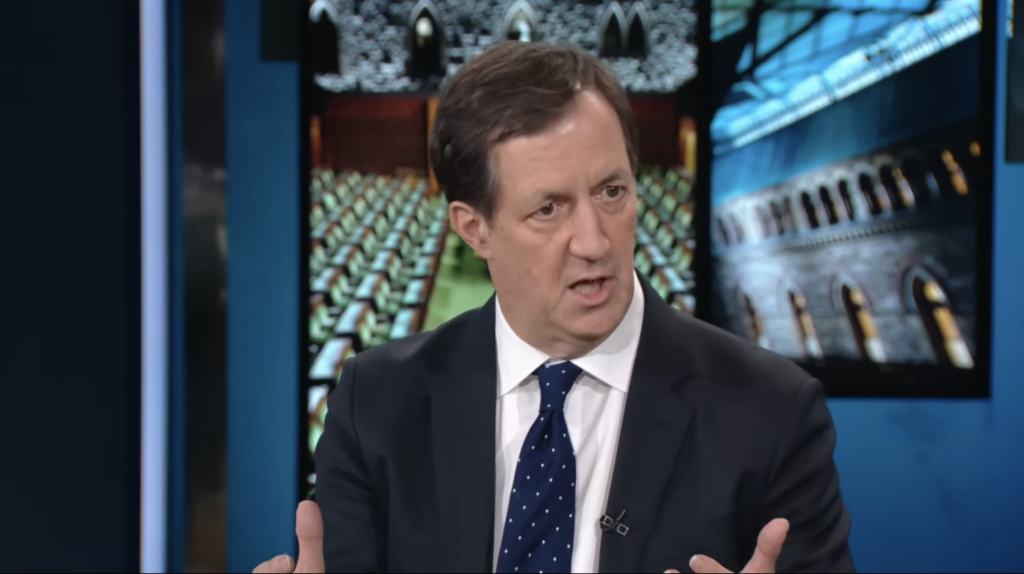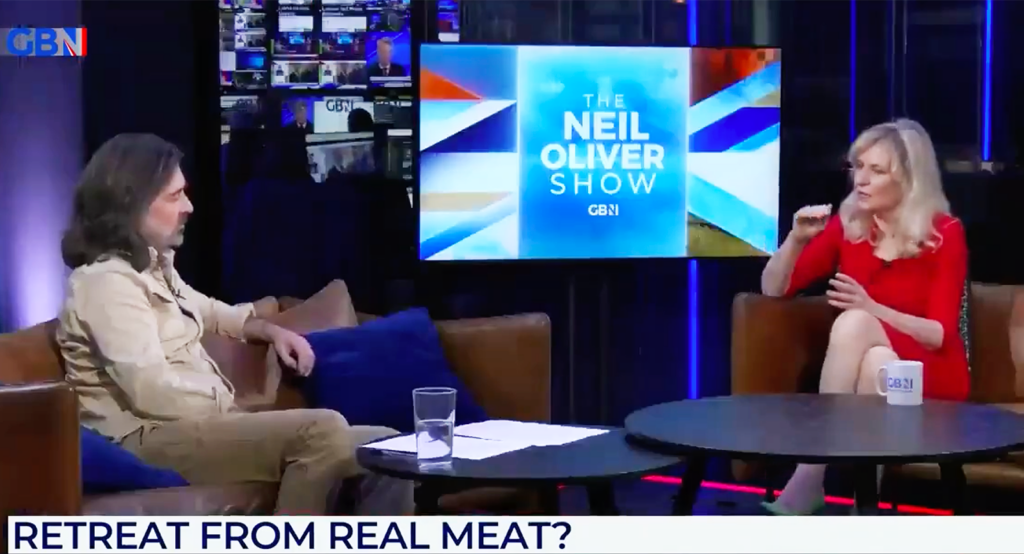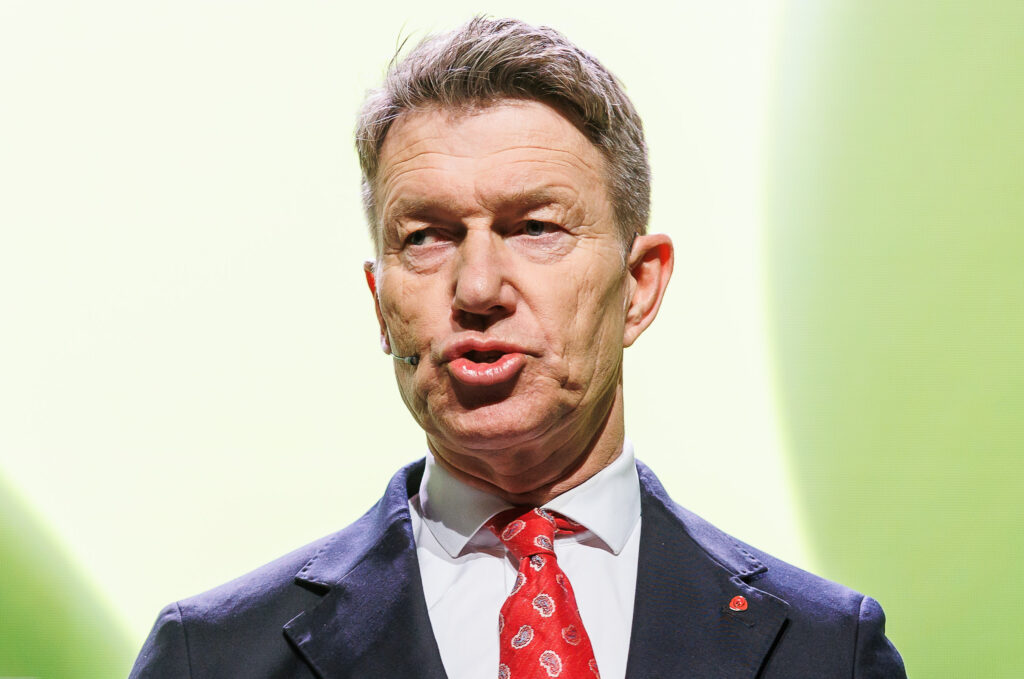“The climate crisis is a hoax,” “climate action is too costly,” “the climate has already changed in the past”: Misinformation about climate change is everywhere, coming at us from multiple directions.
Fake news circulates online. Political leaders make denier and delayer arguments. Companies with a vested interest in the status quo put out greenwashing and obstructionist messaging, as the May 1 U.S. congressional report about fossil-fuel disinformation underscores.
Misinformation sways minds and confuses the public, which is what climate-obstructing actors like fossil fuel companies want. If you’re confused, you’re less likely to think about their responsibility for the climate crisis and more likely to believe their lies.
“A number of empirical studies have measured a whole bunch of negative effects of climate misinformation. I found that it was polarizing and it reduced climate literacy. Other studies have found that it reduces policy support,” said John Cook, senior research fellow at the Melbourne Centre for Behaviour Change at the University of Melbourne and founder of Skeptical Science, one of the first websites to fight climate change denial myths.
“It also reduces trust in scientists. It has a chilling effect on scientists, making them even downplay their own results because they’re afraid of being stereotyped as alarmists,” he added.
The good news: There’s a strategy that makes us less susceptible to being misled and manipulated. Researchers call it psychological inoculation. It works like a vaccine.
“The general principle of inoculation is you build people’s immunity to misinformation by exposing them to a weakened version of the misinformation,” Cook said. “First, warn people of the threat of being misled, and secondly, explain the techniques that the misinformation uses to mislead. And this is what my work is mostly concentrated on, explaining the techniques of misinformation, the fallacies and rhetorical techniques.”
This strategy “activates” people’s intellectual and psychological immune system, according to Sander van der Linden, a social psychology professor who directs the Cambridge Social Decision-Making Lab. He has said that “some epidemiology models can be used to predict the spread of viral information just like the spread of a biological pathogen.”
Another parallel with vaccines: disinformation inoculation “fades over time, so you need booster shots,” Cook said. “If you could inoculate enough of the public, even if you can’t change the minds of [everyone], you can achieve herd immunity and for all practical purposes not eradicate climate denial, but make it politically irrelevant.”
Dealing With Your Cranky Uncle
Inoculation has some advantages over “debunking,” dealing with misinformation after the fact. According to a 2022 study co-authored by van der Linden, University of Bristol cognitive scientist Stephan Lewandowsky, and others, “correcting misinformation does not always nullify its effects entirely.”
This is known as “continued influence effect”: People continue to rely on and remember the inaccurate information even after seeing a correction.
With a total of nearly 30,000 participants, the 2022 study also found that watching short inoculation videos improved people’s ability to identify the manipulation techniques used in online misinformation. The research focused on five techniques of misinformation: excessively emotional language, incoherent or mutually exclusive arguments, false dichotomies or dilemmas, scapegoating individuals or groups, and attacking the messenger rather than the message.
Giving people the tools to recognize how misinformation works, rather than just correcting it by presenting facts, is the more effective strategy.
“The technique-based approach can convey immunity across topics. So you can convey immunity against a technique used in climate misinformation, and if that technique is also used in vaccine misinformation, then it can give people immunity against the same technique across topics,” Cook said. “Whereas if you’re trying to just communicate the facts to people, that doesn’t always work. Sometimes the misinformation can cancel out the facts.”
Cook has also developed “Cranky Uncle” games that use cartoons and critical thinking to fight misinformation.
“While Cranky Uncle is purely technique-based, Cranky Uncle Vaccine is a combination of fact-based and technique-based,” Cook said. “The beauty of the first is you can do it across topics. So that’s quite powerful. But the advantage of doing a more specific thing, whether it’s vaccines or climate, is that by combining facts and techniques you can both increase their understanding of facts about the issue as well as increase their understanding of critical thinking.”
In a pilot study conducted for the vaccine game, “we found that agreement with vaccine facts went up while agreement with vaccine myths went down,” he added. “That’s really what you want to see in these kind of interventions — you don’t want to see belief in the facts go down as well because then what you’re doing is you’re just making people distrustful of all information. And that’s not an outcome you want from a misinformation intervention.”
Another advantage of this approach is that it can sidestep ideological, political and cultural biases tied to climate issues.
“We found that when we explained the fake expert strategy in tobacco and misinformation, that conveyed immunity against climate misinformation without us having to mention climate change and potentially trigger people because of any cultural barrier,” Cook said.
But what makes people susceptible to climate misinformation in the first place?
Cook said that while he was working on his doctorate, around 2017, his answer to this question would have been a certain type of political ideology — that people who don’t like government regulation, or who support free markets, don’t like the solutions to climate change. Today, his answer is a little different.
“Since 2017 and particularly living in the U.S. from 2017 to 2021, I came to realize that tribalism is even deeper,” he said. “People have beliefs and they can be pretty strong and hard to shift, but even stronger and harder to shift is people’s tribalism and their social identity. And that’s why meta-analyses that look at what drives climate denial find that political affiliation is even stronger than political beliefs.”
Multiple Approaches for Different Audiences
A team of researchers from the University of Geneva in Switzerland have developed and tested six psychological interventions on participants based in 12 countries, ranging from the United States to South Africa.
These interventions included addressing trust in scientific sources, for example, and people’s moral convictions about climate action.
“People are moved by facts, but they’re also moved by other things like emotions, like their own morality, and the trust that they have in science,” said Tobia Spampatti, co-author of the study and a doctoral candidate at the University of Geneva. “What we wanted to do is try to develop new strategies that tap into these other components of how people think and change their minds to see if through them, we could make them more protected against climate disinformation.”
The research, published in Nature Human Behaviour last fall, also underscored the pervasive and persistent nature of misinformation.
Of the six interventions, participants inoculated to reflect on the accuracy of climate-change-related misinformation significantly increased their capacity to distinguish between true and false statements. According to the study, “accuracy prompts” not only decreased the influence of misinformation on political belief but also on the sharing of fake news.
“Climate disinformation actually affects people, it affects people’s beliefs, it affects support [for climate action], it affects their ability to discriminate between true and false, and even their behavior, so people tend to behave less pro-environmentally when they receive misinformation,” Spampatti said.
Some people are harder to inoculate than others. Cook sees three potential audiences and offers different goals for each.
“With the first type, the ‘convinced,’ your goal is to activate them to get them moving, acting, or just even talking about climate change in order to build social momentum, and inoculation can help do that,” Cook said. “The second type of audience is the ‘undecided’ — for them inoculation is about improving their immunity and reducing their vulnerability to misinformation. The same intervention can have these two different effects.”
The third category is the hardest to convince. Inoculation for “dismissive” audiences can work, but “it’s a hard sell,” Cook added.
Because misinformation is so complex, inoculation can’t stand alone.
“I think that we do need to have a scattershot approach. We do need to be coming at misinformation from lots of different angles and using lots of different techniques,” Cook said. “We should be doing debunking and accuracy nudges and looking at all the tools that you can use in social media and any regulation tools you can use through government and legal avenues.”
In April, for example, the European Union started action against 20 airlines that authorities say have made misleading greenwashing claims.
“We should be throwing everything at it because misinformation is so ubiquitous and complicated,” Cook added.
Subscribe to our newsletter
Stay up to date with DeSmog news and alerts






